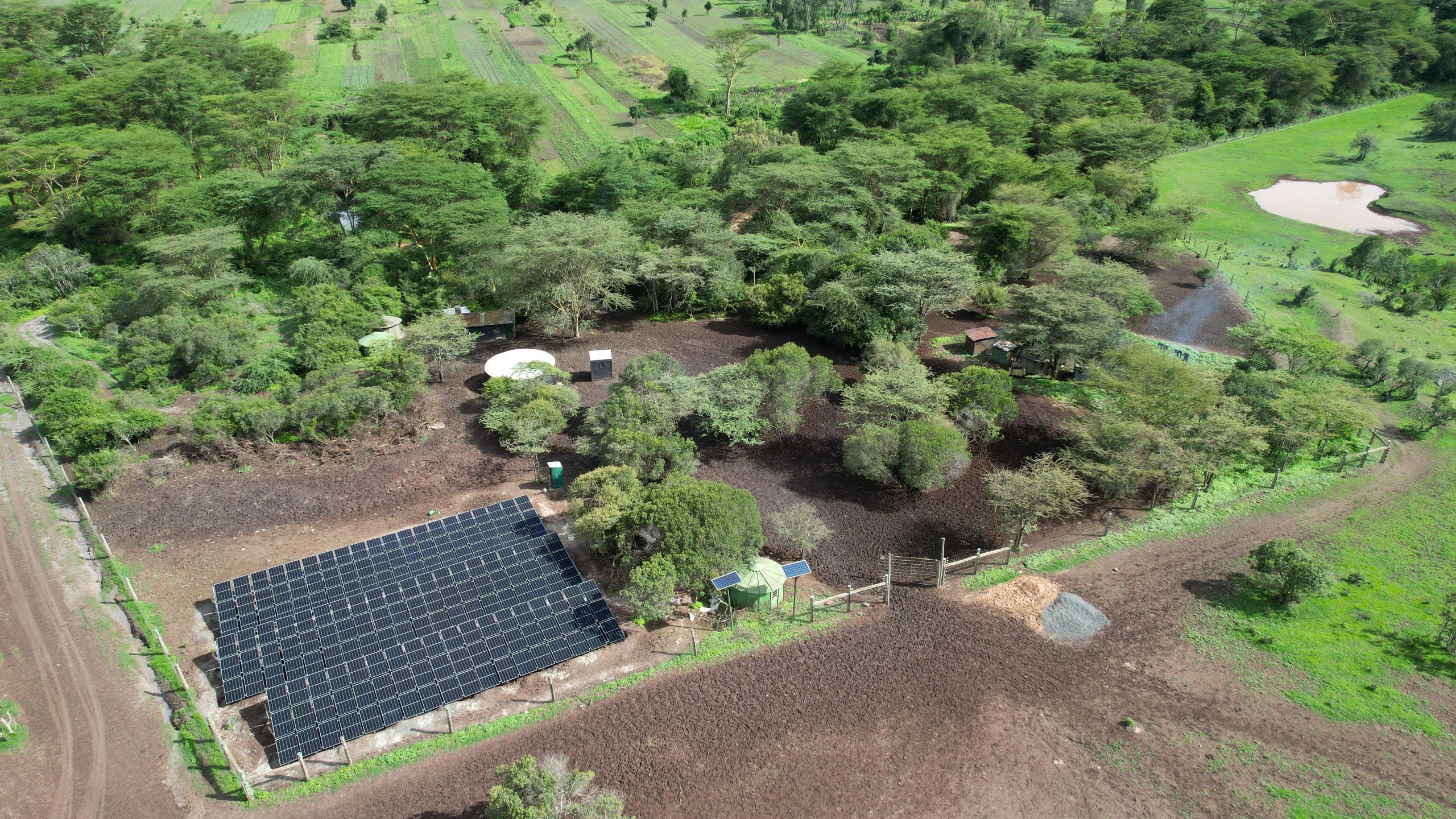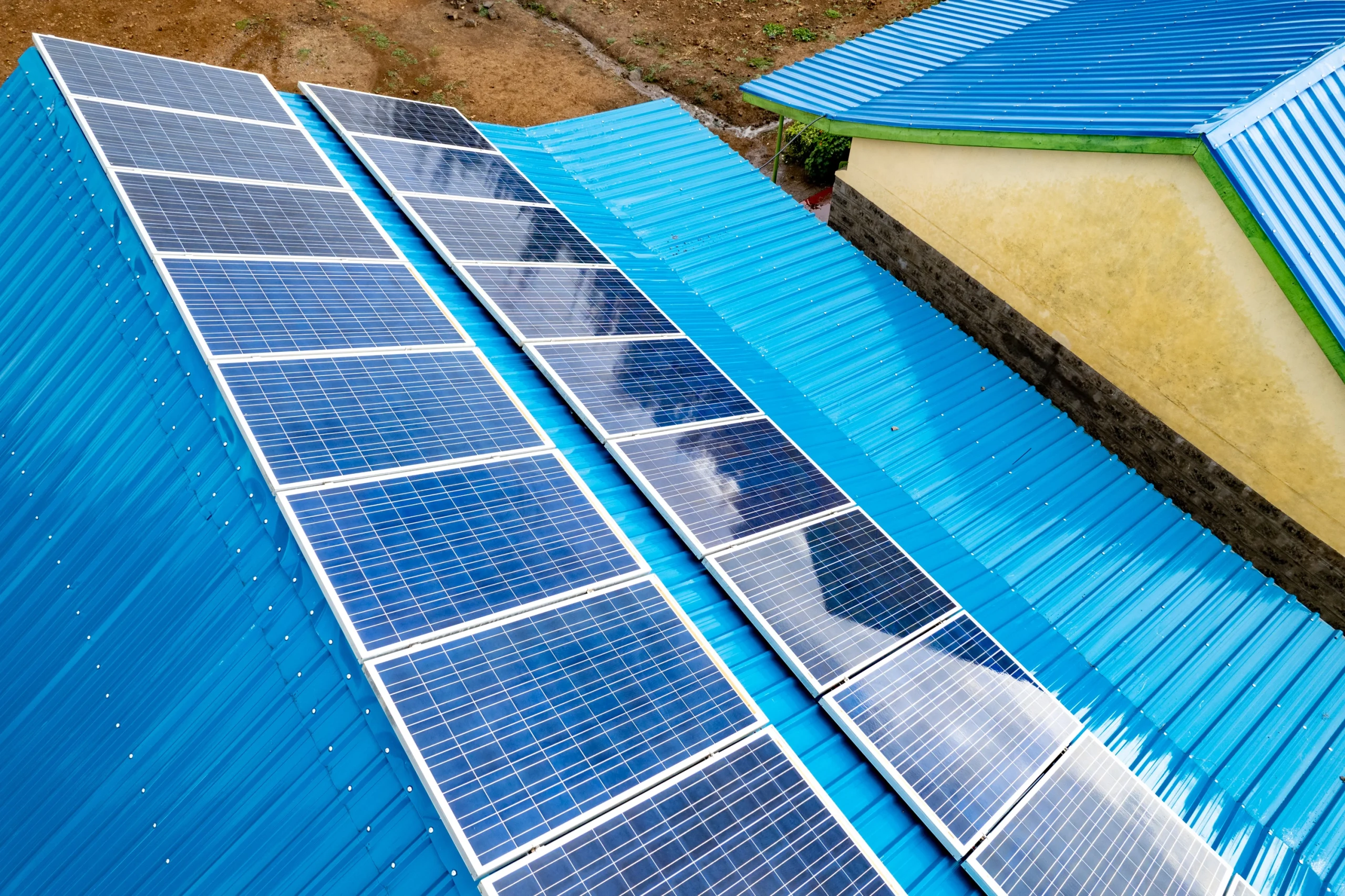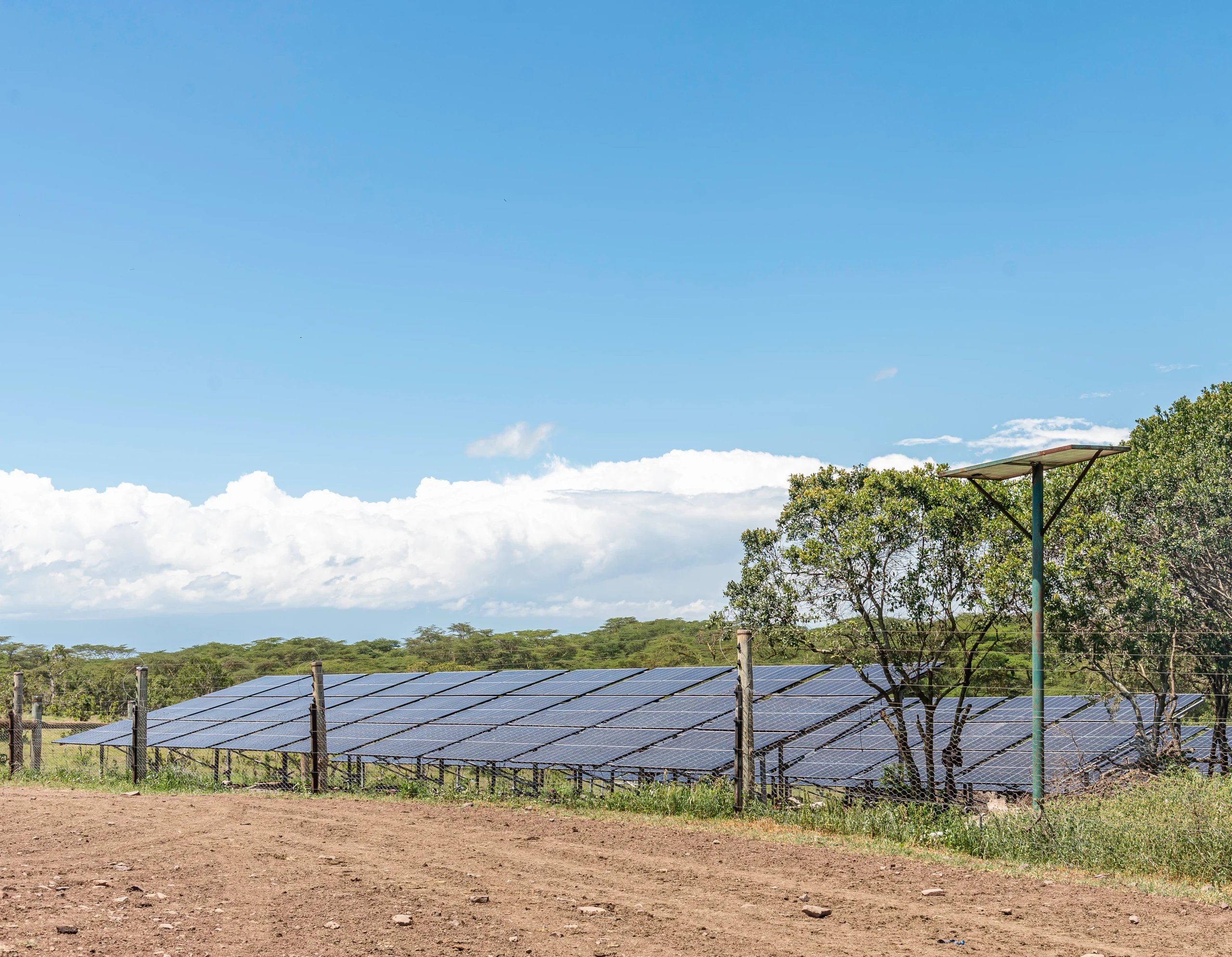Projects
Ol Pejeta Projects
EDUCATION
The education section has invested in scholarships, digital literacy, infrastructure support and conservation education. The scholarship program is designed to provide opportunities for secondary education to needy and deserving students from around the community and so far over 400 students have benefited from full scholarships and bursaries. Currently, there are 277 students in secondary schools across the country on 4-year scholarships. Through the digital outreach program anchored around ARES (Africa Ruggedised Education Solutions) 35 schools in Laikipia participate and have received training in digital integration with over 400 teachers trained on the use of various classroom technology. All the children from schools around the conservancy are allowed into the conservancy free of charge as part of the conservation education program. In addition, the conservation education team also carries out school visits and training for students and youth groups. They participate in tree growing, awareness creation, and shared learning to appreciate conservation both in the conservancy and school/community setup. The education team also takes part in various mentorship programs supporting high school students in surrounding schools and providing bi-annual mentorship weeks to all the scholarship students. This helps them navigate the non-academic aspects of life and prepares them for post-secondary and career realities.
Ol Pejeta Projects
FOOD SECURITY
The livelihoods of the majority of Ol Pejeta’s neighbors are centered on agriculture. Our neighbors in the north are predominately pastoralists keeping cattle and sheep while the south East and West have a robust population of mixed farmers relying on subsistence farming. We partner with both groups of farmers to boost their livelihoods through a multifaceted approach of extraction services and training. Breed and seed improvement via artificial insemination and certified seed distribution. Investing in these approaches allows many farmers to increase productivity and build resilience against unreliable rainfall. There is significant emphasis on climate-smart agriculture in the face of rapidly changing weather conditions. The interventions include a driven push for reforestation and agroforestry both as a tools to manage water catchment and improve farm productivity. Our extension officers partner with the county government to provide vaccination services for livestock in relevant community areas. Water harvesting is also a key pillar our this support and it is done through water pans and shallow dams, tanks, and other tools for domestic water harvesting.
Ol Pejeta Projects
ENTERPRISE DEVELOPMENT
Part of the partnership in livelihood includes enterprise development, especially with farmers and other community members who are creating value through diverse industries. Ol Pejeta provides a major market for farm produce, which is procured for staff rations, our restaurants in the conservancy, as well as feed for the chimpanzees and other wildlife. Annually, the conservancy purchases over KES 8,000,000 worth of produce from community farmer groups, who are given the first priority in supplying fresh fruit and vegetables.
The conservancy, through the tourism section, also supports community women who are engaged in jewelry making by creating a direct market for tourists to buy from them. Several of the community programs, such as water tanks and poultry distribution, are done through revolving funds and/or microfinance. The conservancy invests in these initiatives to provide these groups with seed capital, which they then manage through their respective groups
Ol Pejeta Projects
WATER
In Laikipia’s dryland areas, access to water for farmers and pastoralists is a key issue. Droughts are commonplace, and unsustainable grazing practices and water harvesting lead to degraded landscapes, and dry riverbeds. By helping communities build their resilience to drought, and implement more sustainable natural resource management initiatives, Ol Pejeta hopes to assist in enhancing the local economy, improving the quality of land, and securing jobs for people in the agricultural sector.
With the help of several international partners, Ol Pejeta is working with local farmers on conservation agriculture, rainwater harvesting and carbon sinks projects. Greenhouse farming and drip irrigation are helping to mitigate abstraction of water from rivers, while increasing crop productivity for many farmers.
Ol Pejeta’s partners for the water programme include NEPcon, Zeitz Foundation, Gorta-Ireland, Rotary International,Laikipia Wildlife Forum (LWF), Ministry of Agriculture, Livestock and Water, Caritas – Nyeri, Kenya Network for Dissemination of Agricultural Technologies (KENDAT), Kenya Agricultural Research Institute (KARI), Lengetia Farm and Serena Hotels.
Ol Pejeta Projects
ENERGY
The majority of the communities around Ol Pejeta are not connected to mains electricity. The vision of Ol Pejeta’s Community Energy Program is to create access to affordable, clean energy for a productive community. By thinking globally and acting locally, Ol Pejeta hopes to help communities pave the way for renewable energy all over Laikipia.
Without electricity, many people turn to unsustainable energy sources such as charcoal, kerosene and even car batteries. Ol Pejeta and partners have helped communities replace many of these with renewables such as solar power, energy-saving stoves, and biogas.
Two expansive solar systems have been installed at Mwituria Secondary and Ereri Primary Schools, to save the school money and help them ‘go green’. Over 200 solar lighting and charging systems have also been installed in surrounding households.
Biogas stations in four schools use waste from the school’s cows to fuel kitchen gas cookers. In addition, the waste also helps fertilise the school’s vegetable and lucerne gardens, which feed the students and the cattle. These biogas stations were installed as demonstrations for community households wishing to adopt similar projects, and has resulted in over 50 households installing biogas systems for domestic use.
Energy-saving stoves dramatically reduce the demand for firewood, as well as mitigating health complications that come with traditional open-fire stoves. A partnership with German NGO Die Ofenmacher has helped roll out these stoves in over 350 households, and provided employment as people learn to build and install stoves for others. So far, the stoves have resulted in a 50% reduction in firewood consumption, which in turn is helping the local landscape recover.



